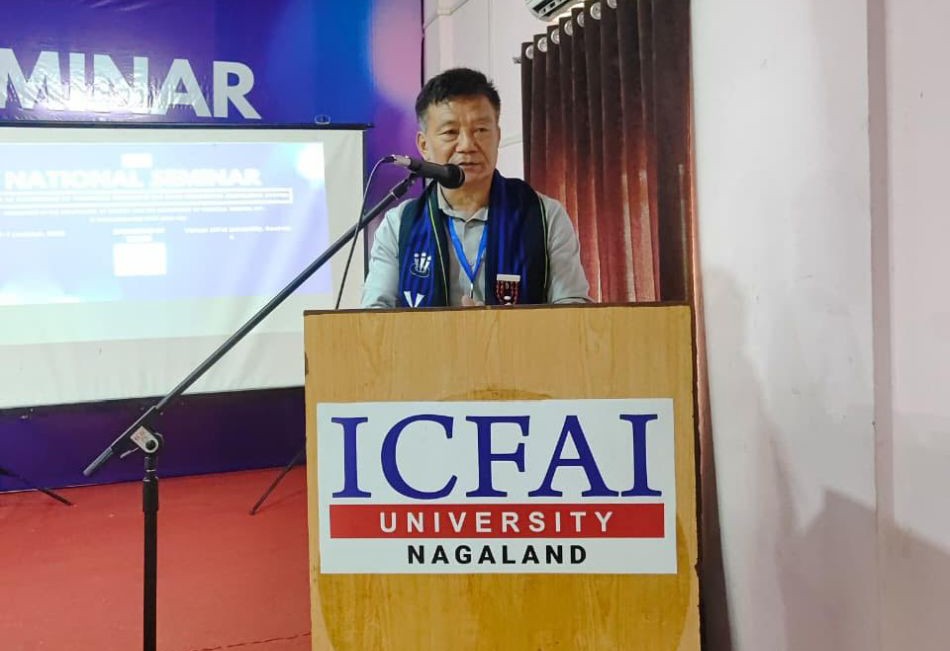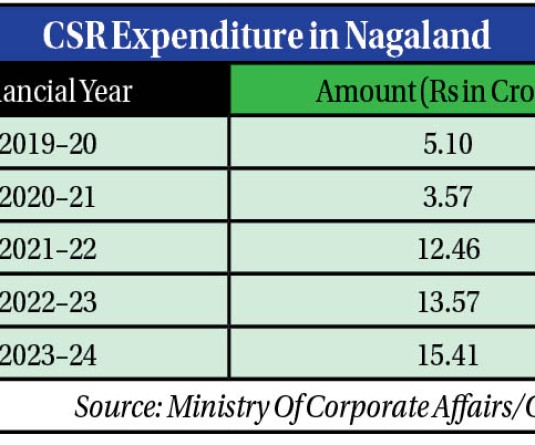K Temjen Jamir, Editor and Proprietor of Tir Yimyim.

CHÜMOUKEDIMA, OCTOBER 7 (MExN): The Department of History and the Department of Political Science of ICFAI University Nagaland (IUN), in collaboration with IQAC, organised a two-day national seminar titled “Tribals as Custodians of Tradition: Exploring the Naga Indigenous Knowledge System” on October 6 and 7 at the university campus. The event was sponsored by the Indian Council of Social Science Research (ICSSR), New Delhi.
The seminar highlighted the rich indigenous knowledge and cultural heritage of the Naga and Northeast tribal communities, bringing together scholars from across India, including Kashmir, Kerala, Guwahati, and Shillong. In the inaugural session, Seminar Convenor Dr. Resenmenla Longchar noted the alignment of the seminar with NEP 2020, emphasizing the incorporation of Indian Knowledge Systems.
Vice-Chancellor Prof. Saundarjya Borbora stressed the importance of documenting oral traditions and integrating tribal customs into community life. Prof. Vulli Dhanaraju (NEHU) delivered the keynote address on “Indigenous Onto–Epistemic Sympoiesis: Entangling with More Than Human World,” discussing the complexities of situating indigenous knowledge within academic frameworks.
The seminar featured six technical sessions covering customary law, oral traditions, agriculture, ecology, textiles, and pedagogy. The valedictory session was addressed by K. Temjen Jamir, Editor and Proprietor of Tir Yimyim, who highlighted the spiritual and ethical foundations of traditional tribal society, noting that ancestral reverence for the divine shaped ethical and social structures.
The two-day event provided a platform for interdisciplinary dialogue, promoting research and community engagement aimed at preserving and documenting indigenous knowledge systems.






